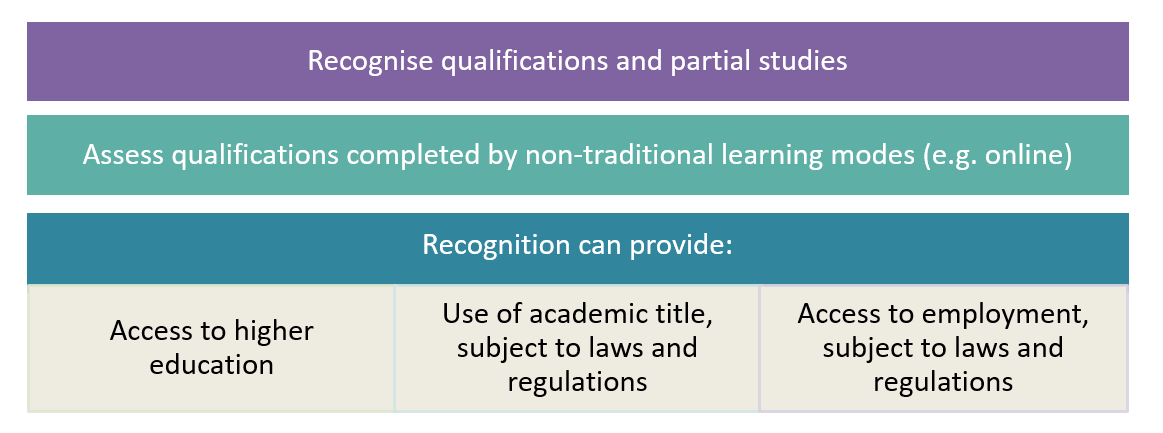Mobility of Learners and Learning

For UNESCO, international mobility in higher education is a means to promote peace and security through strengthening ties in education, science and culture. In line with the Sustainable Development Goals, mobility is also an opportunity to develop our individual competencies and global awareness.
Mobility is defined as the physical or virtual movement of individuals outside their country to study, research, teaching, or working (Global Convention, 2019). In other words, mobility involves the movement of learners, as well as the mobility of courses, programmes, and institutions. Given the increasing mobility worldwide, the comparability, recognition, and quality assurance of qualifications have become a growing area of concern, particularly in countries where administrative systems are weak. APNNIC plays a crucial role in building the capacity of higher education systems, setting standards and sharing authoritative information to facilitate student mobility.
APNNIC’s role in student mobility
In terms of student mobility, the Asia-Pacific region is the most mobile region in the world, with over X.X million outbound students each year (UNESCO UIS). Increasingly, students from different world regions, as well as within Asia-Pacific, make the Asia-Pacific region their study destination. As a result, questions about the recognition practices of countries in the region are critical. Drawing on the Tokyo Convention, recognition policies and practices should be transparent, coherent, reliable, fair, and non-discriminatory.
APNNIC facilitates mobility by promoting access to accurate information and ensuring fair and transparent recognition practices among Parties to the Tokyo Convention. The network supports and facilitates the practical implementation of the Tokyo Convention by competent recognition authorities. Fair recognition practices are a key enabler of student mobility, including providing access to higher education, the use of an academic title, and access to employment opportunities, all subject to the laws and regulations of a given country.
🔗 Global flow of tertiary-level students
Fair recognition is an important enabler of physical and virtual mobility


